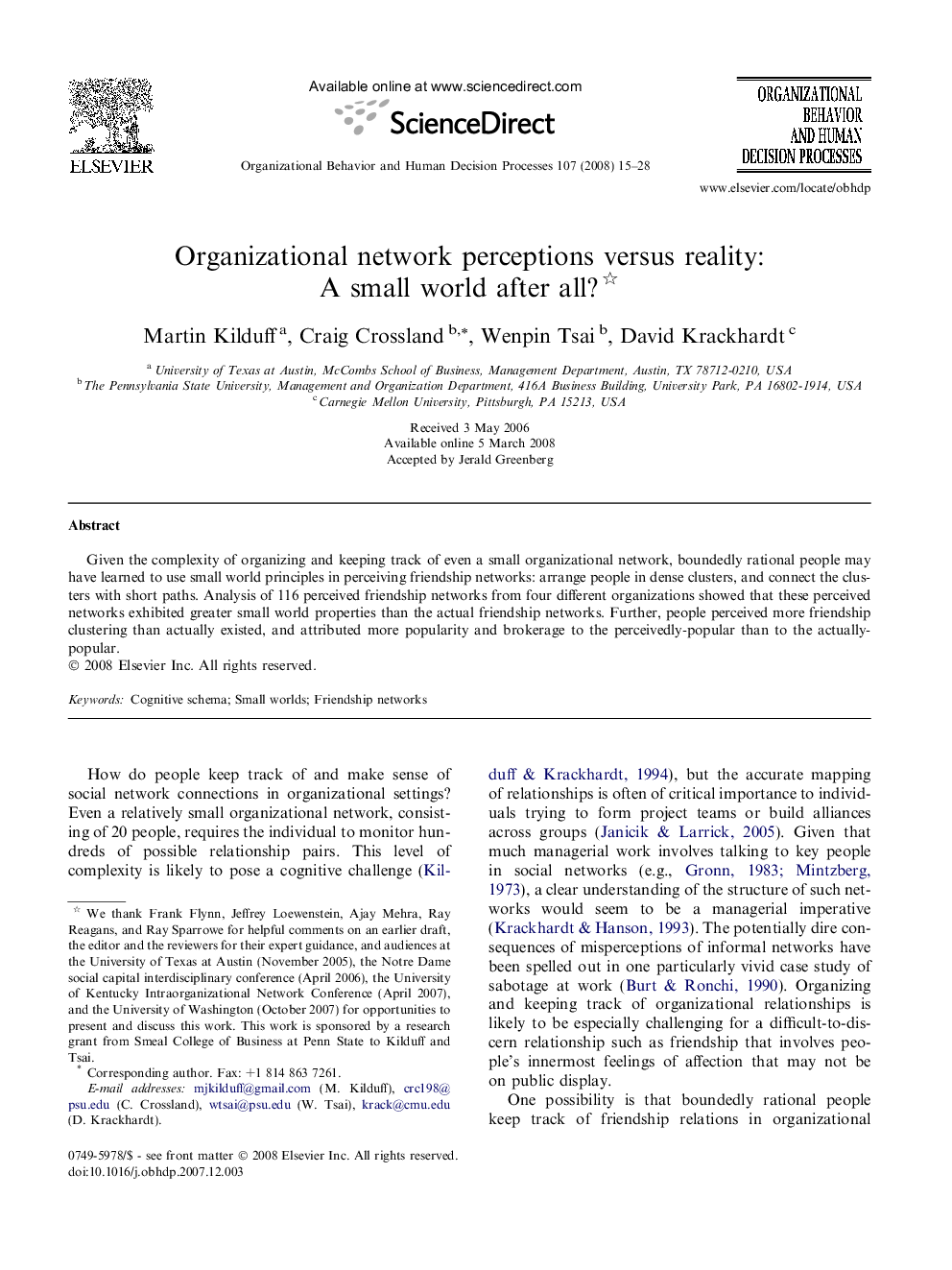| Article ID | Journal | Published Year | Pages | File Type |
|---|---|---|---|---|
| 889005 | Organizational Behavior and Human Decision Processes | 2008 | 14 Pages |
Abstract
Given the complexity of organizing and keeping track of even a small organizational network, boundedly rational people may have learned to use small world principles in perceiving friendship networks: arrange people in dense clusters, and connect the clusters with short paths. Analysis of 116 perceived friendship networks from four different organizations showed that these perceived networks exhibited greater small world properties than the actual friendship networks. Further, people perceived more friendship clustering than actually existed, and attributed more popularity and brokerage to the perceivedly-popular than to the actually-popular.
Keywords
Related Topics
Social Sciences and Humanities
Business, Management and Accounting
Marketing
Authors
Martin Kilduff, Craig Crossland, Wenpin Tsai, David Krackhardt,
